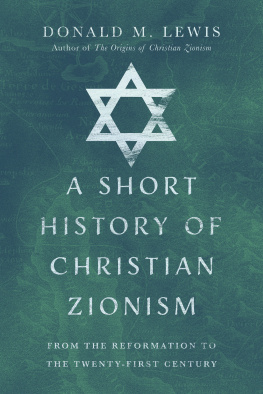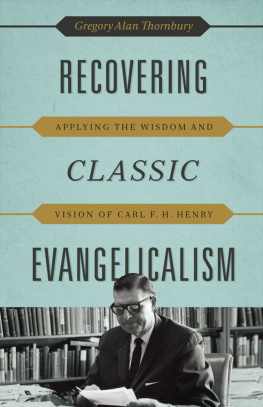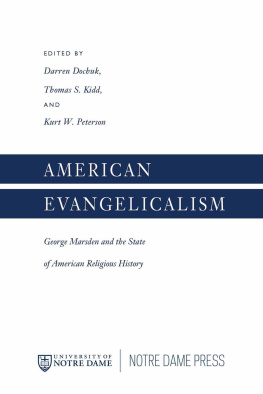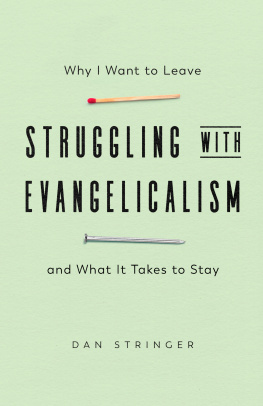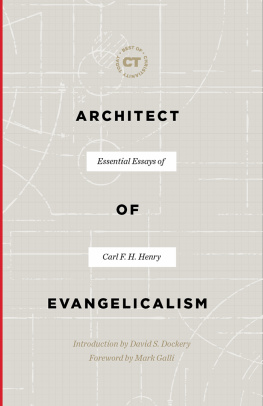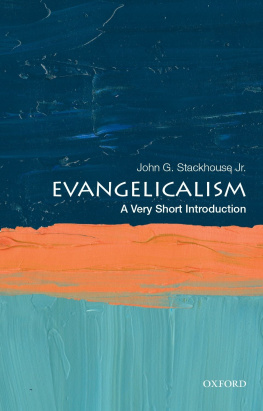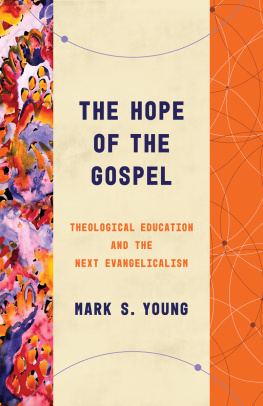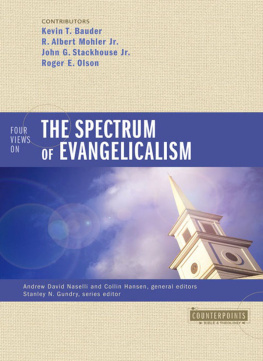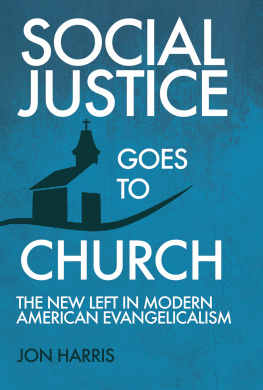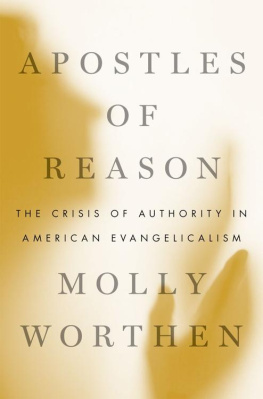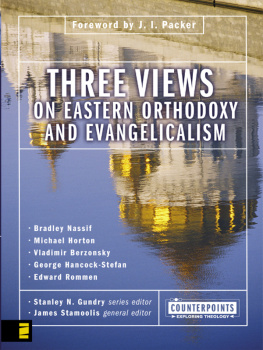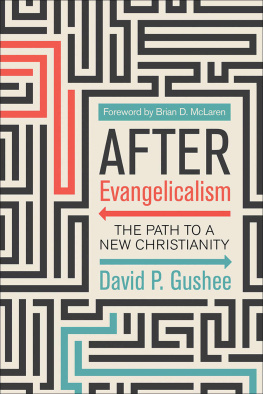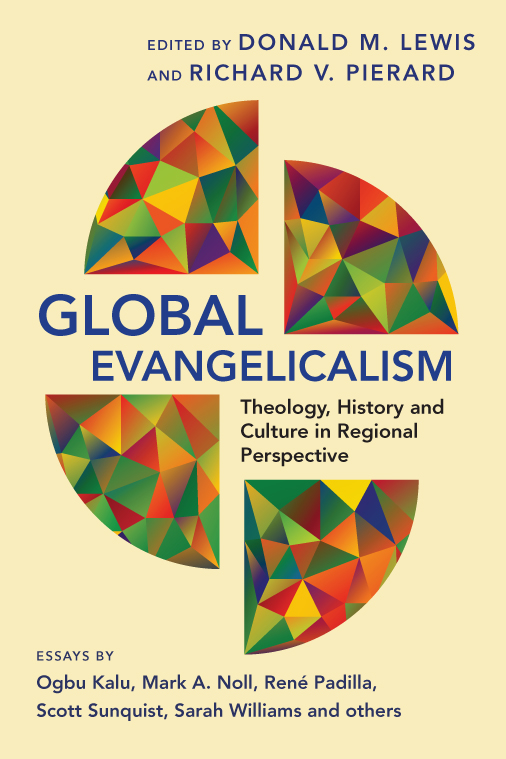This book is dedicated to the memory of Ogbu Kalu.
Preface
This edited volume is the product of years of collaboration involving an international group of scholars. The origins of the initiative can be traced back to conversations in the late 1980s between some of the leading historians of evangelicalism: Mark Noll (then professor of Christian thought at Wheaton College), Edith Blumhofer (then director of the Institute for the Study of American Evangelicals at Wheaton) and the late George Rawlyk, professor of history at Queens University in Kingston, Ontario. A conference on Evangelicals, Voluntary Associations and American Public Life, sponsored by the Institute for the Study of American Evangelicals, was held at Wheaton in June of 1991. Mark Noll drew together an initial core of historians to talk about how to advance the academic study of evangelicalism and to share the results of such research with a much wider audience. They included Mark Hutchinson from Sydney, Australia; J. W. (Hoffie) Hofmeyr from the University of Pretoria; John Wolffe of the Open University in England; Richard V. Pierard (then at Indiana State University); and Donald Lewis of Regent College in Vancouver, Canada. The group soon expanded to include many other experts. An initial conference was held in Sydney, Australia, in 1997, and resulted in the publication of A Global Faith: Essays on Evangelicalism and Globalization (Centre for the Study of Australian Christianity, Sydney, 1998), edited by Mark Hutchinson and Ogbu Kalu.
In the late 1990s funding was secured for the Currents in World Christianity Project (CWC) based at Cambridge University and headed by Brian Stanley. The CWC went on to sponsor several key international consultations and conferences in England, New Zealand and South Africa. One of the initiatives of the CWC was aimed at producing a single volume of essays that would acquaint a wide international audience with the latest research on global evangelicalism, and it was hoped that this volume would be translated into a number of languages and help many audiences beyond the confines of Western academia to understand this movement. This is that volume.
Our thanks and gratitude must be expressed to the Pew Charitable Trusts of Philadelphia, Pennsylvania, for the funds that made the Currents in World Christianity Project possible, which in turn underwrote the costs of putting this volume together.
We also wish to express our sincere gratitude to Mark Hutchinson for his work in initially pulling articles together for this volume; in spite of his heroic efforts, after a few years of trying to complete the project he found himself overwhelmed with teaching and administrative duties, and as a result, we volunteered to see the volume to the finish line. There are a host of individuals who need to be thanked for their hard work in reading and critiquing the volume in various stages of its preparation: chiefly Doug Hills, whose administrative gifts were so helpful, but also to Hanna Dutko, Danae Yankowski, David Lewis, Laura Werezak, Tim Proudlove, Matthew Thomas and Paul Gutacker.
Thanks also needs to be expressed to Brian Stanley for his patience with us as we have endeavored to finish the editing process. Daniel Reid of InterVarsity Press has outshone Job in terms of patience with us; we are very much in his debt.
Donald M. Lewis and Richard V. Pierard
Introduction
Donald M. Lewis and Richard V. Pierard
In the second half of the twentieth century, proponents of the secularization thesis asserted that religion was a historical phenomenon associated with premodern societies and that its demise was inevitable in the modern world. This process would, of course, take time, but religions slow disappearance would become evident once a period of cultural lag had run its course. It is now widely recognized that these theorists were wrong. Instead of receding, religions throughout the world have been growing and often have been rigorous in their engagement with the public sphere. In response to these developments, some social theorists are now seeking to construct postsecular theories in order to explain where and how the secularization thesis went wrong.
Much scholarly attention is now given to the development of Islamic identities, but there is relatively little understanding of how various forms of evangelical Christianity have emerged as the mainstream Christian expression in many parts of the world, and in particular, in the non-Western world. Evangelicalism and its history have been effectively marginalized in the academy in spite of the fact that a case can be made that alongside popular Islam, evangelical Christianity is the most dynamic and expanding religious expression in the world today. However, many academics remain essentially ignorant of evangelicalism as a movement, unable to differentiate between basic terms such as evangelist, evangelism, evangelical and evangelicalism. Unfortunately, scholars who work in the field have not been very effective in communicating their findings or in persuading scholars that the global expressions of evangelicalism are important or interesting.
The nature of evangelicalism as a popular movement makes it particularly difficult to track and categorize, and this has contributed to its marginalization in the academy. Like popular Islam, its strength comes from the very diverse grassroots base on which it restsa base made up of individuals, small groups, small and large churches, all spread across a bewildering variety of distinctly evangelical Protestant denominationswhile many evangelicals are to be found within mainline denominations that are not self-consciously evangelical. In fact, some of its most influential thinkers and personalities are members of denominations that are not widely identified as evangelical, which would be true in many ways of evangelicalism within Anglicanism in the West. (Here one thinks immediately of George Carey, the former Archbishop of Canterbury and head of the worldwide Anglican communion; of his successor, Justin Welby, the current Archbishop of Canterbury; the late John Stott, leading evangelical author and pastor; and professor N. T. Wright, formerly Bishop of Durham and currently professor of New Testament at St Andrews University in Scotland.)


